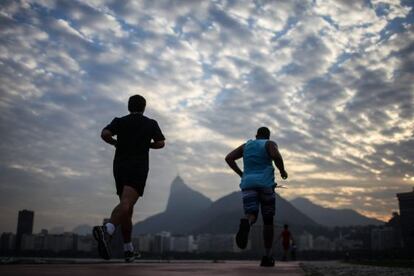Brazil begins to collect blood and urine samples from 20,000 people for massive medical study
Critics believe that researchers may try to use results for unethical purposes


In an unprecedented campaign, Brazilian health officials have begun collecting blood and urine from 20,000 people in 1,600 municipalities across the country in order to create a medical map of their citizens.
It is part of a National Health Research (NIH) study to discover Brazilians’ habits regarding diet and exercise, as well their access to public health services.
Although similar studies are conducted every five years, this is the first time NIH officials will try to learn more about current health conditions of the population by sampling blood and urine from people picked randomly through a lottery in every state.
This novel approach has drawn some controversy because the data the government will collect can also be used to show the prevalence of HIV and the sexual practices of citizens. Therefore, the Health Ministry is studying whether it is possible to conduct this research without contravening medical ethics.
The 20,000 blood and urine samples will be distributed across public and private laboratories. The results will be processed at a single location – Syrian-Lebanese Hospital in São Paulo, where President Dilma Rousseff was treated for lymphatic cancer and former President Luiz Inácio Lula da Silva for throat cancer – to ensure a common pattern in the study.
According to Jarbas Barbosa, the secretary for health surveillance at the ministry, the blood and urine tests will be used to give more accurate statistics on the prevalence of hypertension, diabetes, high cholesterol and sickle cell anemia.
The government also wants to examine the salt intake of its citizens and analyze people's susceptibility to the four types of dengue to prepare vaccinations before epidemics occur.
Brazil is now one of the few countries in the world where most vaccines are provided free to its 200 million citizens during annual national campaigns in which Brazilians tend to respond in droves.
According to medics, the campaigns have effectively contributed to reducing child mortality rates (69 percent over the last 30 years), and increase the average lifespan of the population, which today is 73 years for men and 78 for women.
Tu suscripción se está usando en otro dispositivo
¿Quieres añadir otro usuario a tu suscripción?
Si continúas leyendo en este dispositivo, no se podrá leer en el otro.
FlechaTu suscripción se está usando en otro dispositivo y solo puedes acceder a EL PAÍS desde un dispositivo a la vez.
Si quieres compartir tu cuenta, cambia tu suscripción a la modalidad Premium, así podrás añadir otro usuario. Cada uno accederá con su propia cuenta de email, lo que os permitirá personalizar vuestra experiencia en EL PAÍS.
¿Tienes una suscripción de empresa? Accede aquí para contratar más cuentas.
En el caso de no saber quién está usando tu cuenta, te recomendamos cambiar tu contraseña aquí.
Si decides continuar compartiendo tu cuenta, este mensaje se mostrará en tu dispositivo y en el de la otra persona que está usando tu cuenta de forma indefinida, afectando a tu experiencia de lectura. Puedes consultar aquí los términos y condiciones de la suscripción digital.








































